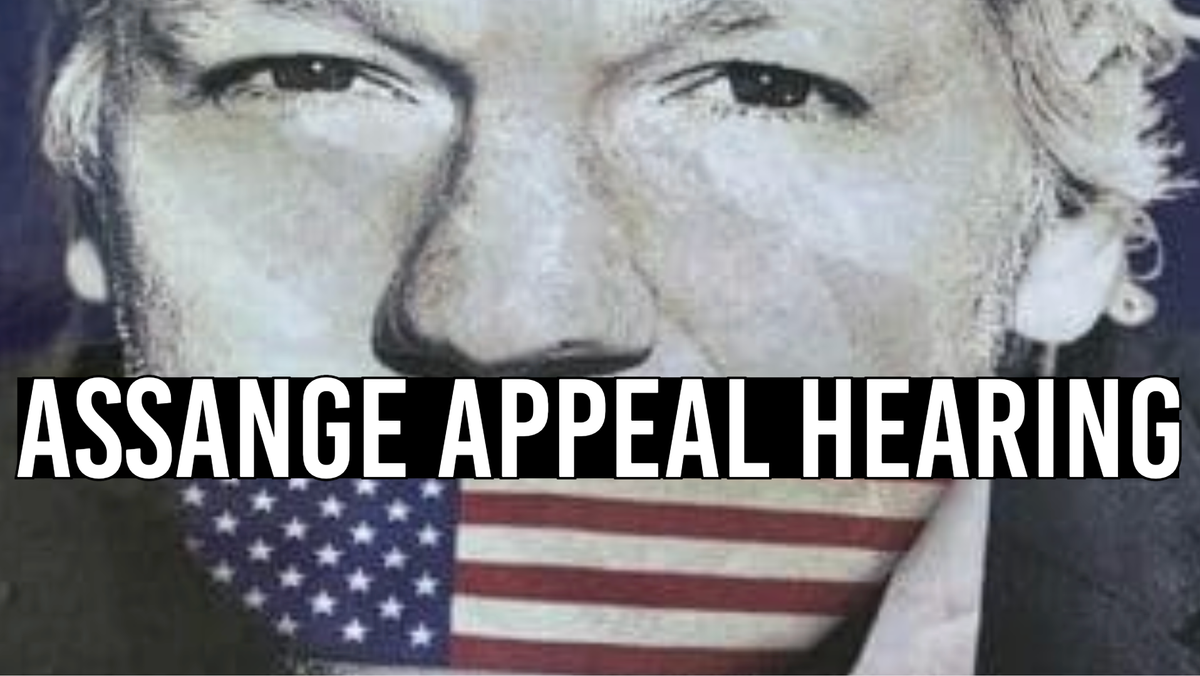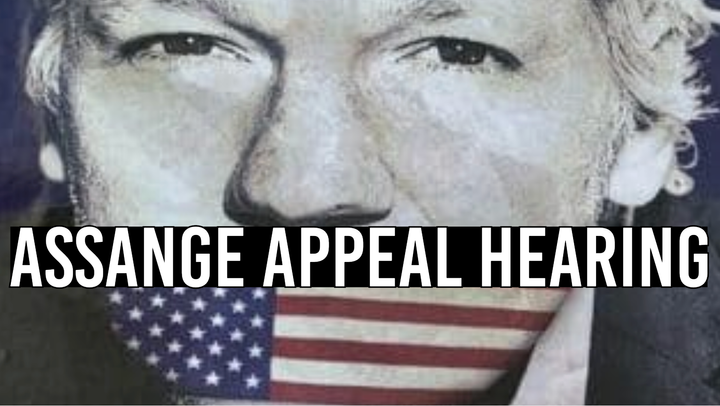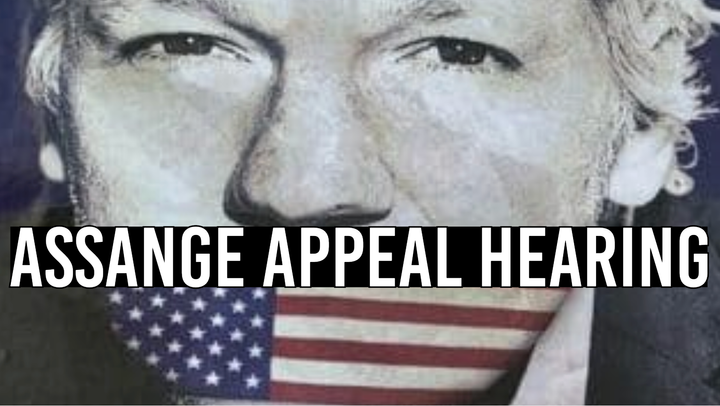UK Appeal Hearing: Denying Assange's Freedom Of Expression
WikiLeaks founder Julian Assange asserts that extradition to the United States would be a “flagrant denial” of his rights to freedom of expression because the charges criminalize journalism.

Editor’s Note: The following was published as part of a “Countdown To Day X” series highlighting key aspects of WikiLeaks founder Julian Assange’s request to appeal his extradition to the United States.
WikiLeaks founder Julian Assange and his legal team assert that extradition to the United States would be a “flagrant denial” of his rights to freedom of expression because the charges criminalize Assange for engaging in journalism.
When Assange was first charged, Ben Wizner of the American Civil Liberties Union (ACLU) and Jameel Jaffer of the Knight First Amendment Institute declared, “The [computer offense] characterizes everyday journalistic practices as part of a criminal conspiracy. Cultivating a source, protecting a source’s identity, communicating with a source securely—the indictment describes all of these activities as the ‘manners and means’ of the conspiracy.”
Specifically, the charge that Assange conspired to commit a computer offense criminalizes him for allegedly creating a “special folder on a cloud drop box of WikiLeaks” for U.S. Army whistleblower Chelsea Manning to submit documents. It treats Assange’s alleged effort to help Manning protect her identity while she was using a military computer as a crime. It also singles out Assange for his use of Jabber, an encrypted chat service, to allegedly communicate with Manning.
The Espionage Act charges target Assange for “personally and publicly” promoting WikiLeaks to “encourage those with access to protected information, including classified information, to provide it to WikiLeaks for public disclosure.” The unprecedented charges treat the bulk publication of hundreds of thousands of documents as part of a conspiracy against the U.S. government.
Trevor Timm, the executive director of the Freedom of the Press Foundation, testified [PDF] at Assange’s extradition trial in September 2020. He described how asking for “leaked documents of public importance,” especially to substantiate claims by a source, is a standard newsgathering practice.
“Moreover, courts in the U.S. have explicitly and implicitly recognized that any attempt to seek criminal or civil sanctions against the press for appearing to incentivize sources to supply information on newsworthy topics faces substantial First Amendment difficulties,” Timm added.
Nevertheless, in 2021, the extradition decision by District Judge Vanessa Baraitser [PDF] accepted the U.S. government's claim that Assange “disclosed materials that no responsible journalist or publisher would have disclosed.”
Article 10 under the European Convention on Human Rights is supposed to protect “public watchdogs.” To balance the protection of rights with particular privacy and security interests, European courts have adopted the concept of “responsible journalism."
The U.S. government insists that Assange knew the dissemination of documents with "informants' names could endanger them and disclosed their names in an unconsidered and indiscriminate manner." By publishing those files, Assange was no longer a "responsible journalist."
But this concept of responsible journalism is in conflict with the First Amendment of the U.S. Constitution. It grants police, prosecutors, and intelligence or security agency officials the authority to make editorial decisions and determine what is and is not “responsible.”
A person’s political opinions or motivations could easily play a role in the decision to charge a person for “irresponsible journalism." That would implicate freedom of speech, and so—regardless of case history in European courts—the more significant fact is that there is no U.S. law that prohibits what Assange allegedly did.
The lead Crown prosecutor asked Timm during the extradition trial if a “responsible journalist” would publish the name of a third party when it was unnecessary to publish that name, and when publishing that name would put that person’s life in danger. Timm responded that the “idea of who is or is not a responsible journalist is different from what is illegal or legal conduct."
Timm mentioned that U.S. Senator Joe Lieberman and other lawmakers had introduced the Securing Human Intelligence and Enforcing Lawful Dissemination (SHIELD) Act in response to WikiLeaks. If adopted, it would have made it a federal crime to publish the name of any U.S. intelligence source. Yet the bill never passed in Congress, which suggests that lawmakers recognized that it was unnecessary to make the publication of intelligence sources by any person a crime.
The U.S. does not have an Official Secrets Act like the United Kingdom. During President Bill Clinton’s final months in office, he vetoed legislation that would have given the U.S. government the power to prosecute any person who “revealed official secrets, including whistleblowers or even ambassadors who briefed news reporters.”
Although the Espionage Act has sometimes been wielded by the U.S. Justice Department as if it is an American Official Secrets Act, it is not exactly an analogous law. There are no provisions in the Espionage Act that allow a defense for a person who “responsibly” disclosed information or who made the disclosures because they were “necessary in a democratic society."
The concept of responsible journalism reinforces a prejudice against those working for organizations, which embrace new technologies and pioneer forms of journalism that empower the public to hold officials accountable.
Baraitser displayed this prejudice when she decided against extending protection to Assange. (That prejudice was partly influenced by the depiction of the WikiLeaks founder as a “co-conspirator," though not entirely.)
“In the modern digital age, vast amounts of information can be indiscriminately disclosed to a global audience, almost instantly, by anyone with access to a computer and an internet connection,” Baraitser stated. “Unlike the traditional press, those who choose to use the internet to disclose sensitive information in this way are not bound by a professional code or ethical journalistic duty or practice.”
“Those who post information on the internet have no obligation to act responsibly or to exercise judgment in their decisions. In the modern era, where ‘dumps’ of vast amounts of data onto the internet can be carried out by almost anyone, it is difficult to see how a concept of ‘responsible journalism’ can sensibly be applied,” Baraitser concluded.
Essentially, the district judge's view was that someone like Assange, who does not work for a legacy or prestige media organization, cannot be trusted to act responsibly. Deterring online publishers from publishing vast amounts of data is more important than any potential infringement on freedom of expression.
Assange's defense maintained that the Official Secrets Act has never been used to prosecute a journalist for “obtaining or receiving or publishing leaked information," a point Baraitser seemingly disregarded.
The British High Court of Justice should reassess the district judge's conclusion. If such prejudice is permitted to deprive Assange of free speech rights, it will be a green light for all governments throughout the world to police the actions of national security journalists.



Comments ()